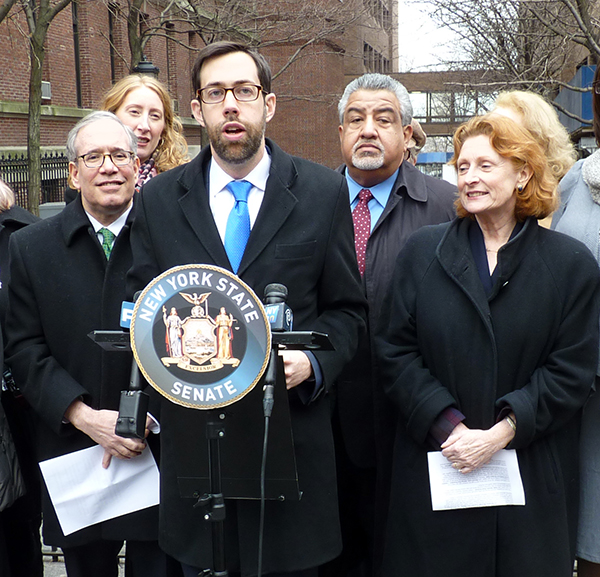Brooklyn’s ‘LICH Act’ inches through NYS legislature
To avoid repeat of chaotic Long Island College Hospital closure

State Sen. Daniel Squadron (at podium) and Assemblymember Jo Anne Simon (right) sponsored the LICH Act to prevent another chaotic hospital closing. Shown left: City Comptroller Scott Stringer. Photo by Mary Frost
A bill sponsored by state Sen. Daniel Squadron and Assemblymember Jo Anne Simon, called the Local Input in Community Healthcare (LICH) Act, is inching its way through both houses of the state legislature.
The bill would require an assessment of community health needs and more transparency when hospitals are threatened with closure. The measure is meant to ensure that what happened to Brooklyn’s Long Island College Hospital (LICH) won’t play out at other hospitals across New York state.
Both officials represent the Brooklyn neighborhoods which fought for two years to stop the state from selling the 155-year-old hospital to developer Fortis Property Group.
